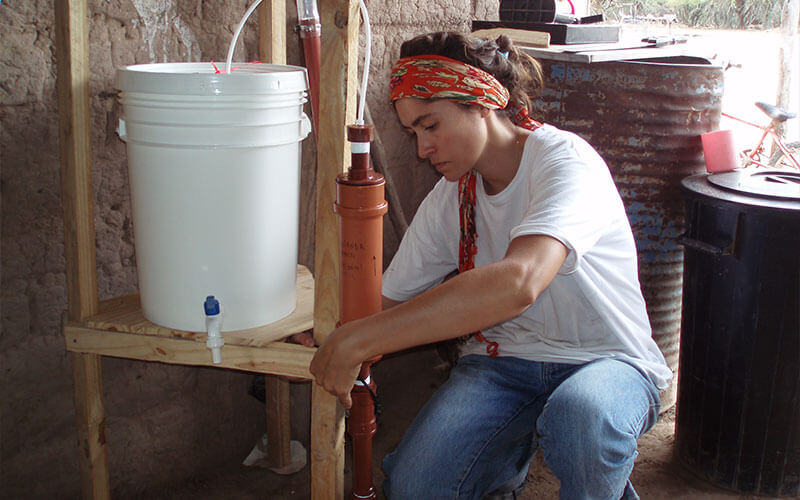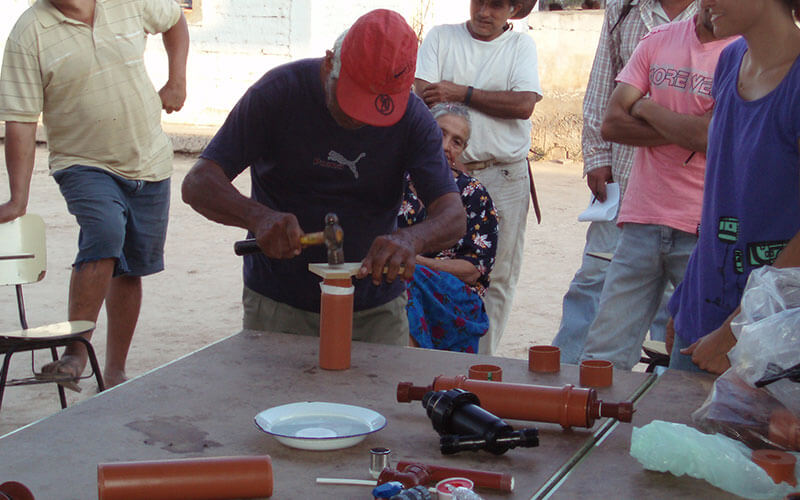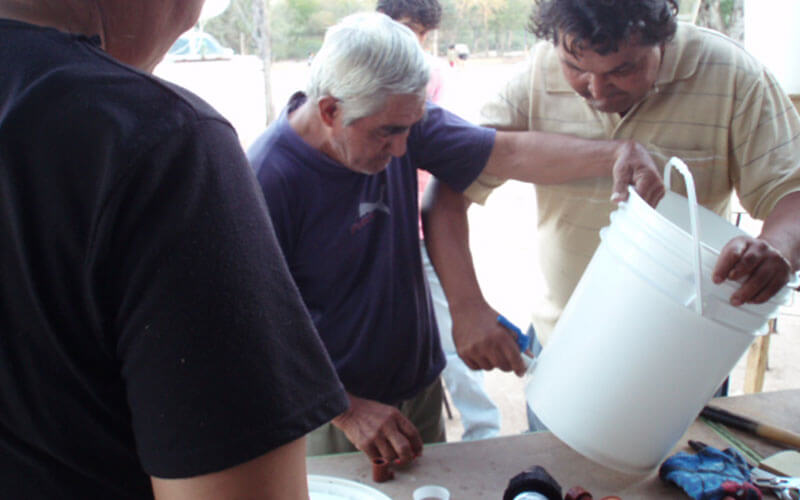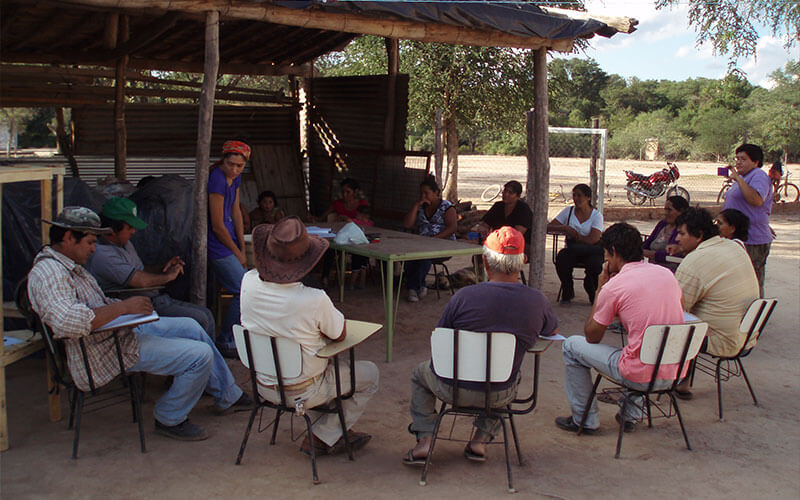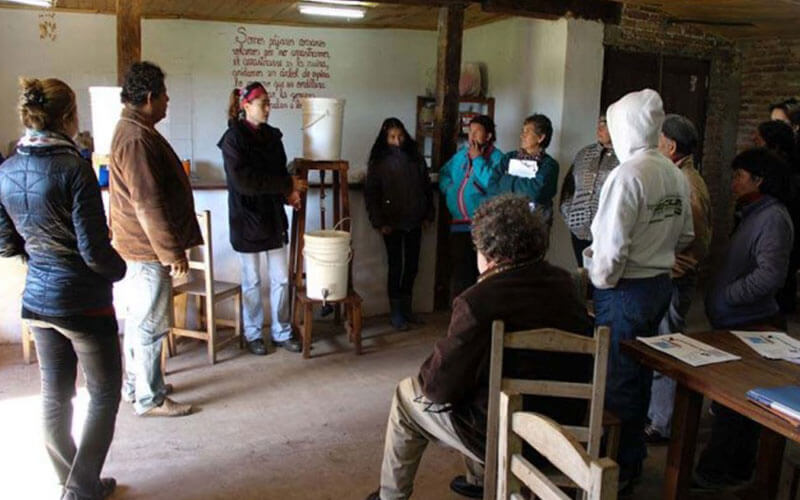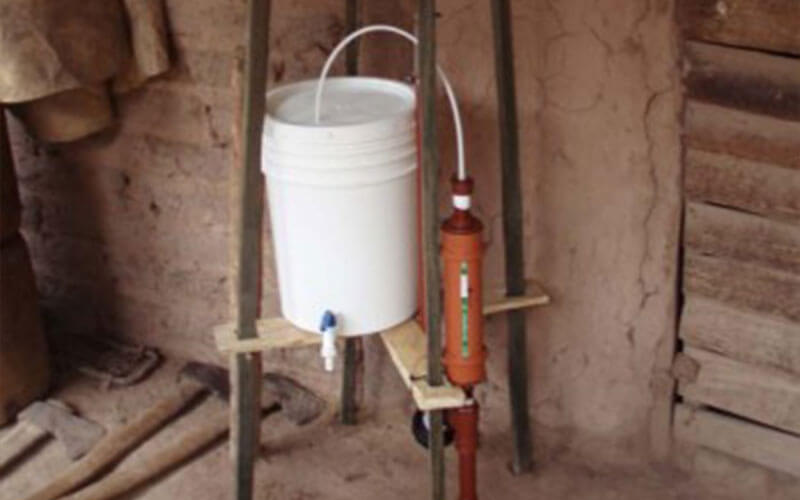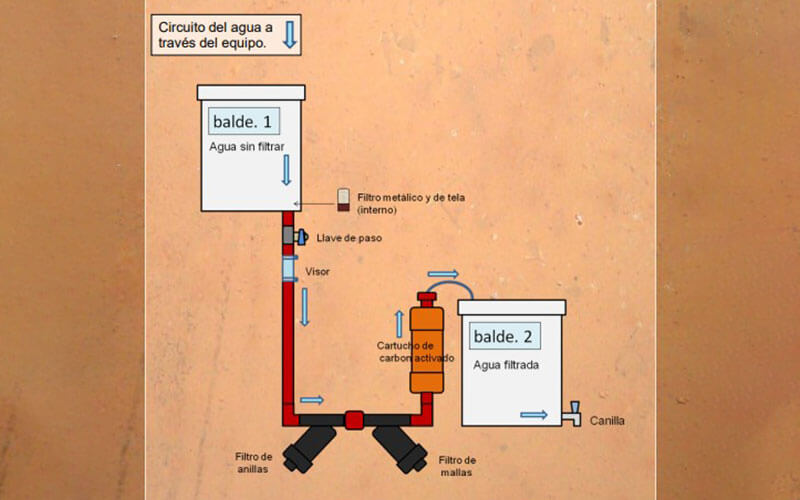In many regions of Argentina, water, a vital resource for life, is scarce, badly distributed, contaminated or there is no easy access. In some very isolated regions, such as the Impenetrable Chaqueño, families do not have access to safe water and the water they use for daily consumption is not drinkable, it generally comes from the river or standing rainwater, with a high number of bacteria and parasites. This situation generates serious health problems for the population and especially affects children, worsening malnutrition.
To develop alternatives that can address this issue, Alimentaris designed a model of water filters for home construction, use and maintenance that would allow not only access to water, but also ensure that it is of the best possible quality.
Besides developing the model, a pilot test was carried out with 20 families (about 100 people) from Fortín Belgrano town and surrounding areas from Güemes department in Salta province. Some particular features of the model are the construction of filters by families, using chlorin, synthetic microfilter meshes, and the use of coconut shell activated carbon to remove the chlorine.
The project developed a model that could be replicated to expand the scope of families, creating mechanisms that allow long-term filters maintenance. In addition to the materials and technique used, one of the keys to the success of this model lies in the commitment by the users. Because of this, different training workshops have been developed on the use, maintenance and awareness of the use of quality water to reduce the risks of consuming contaminated or poor-quality water.
This project was developed by the Wichi Integration Group, Faculty of Exact Sciences of La Plata – Water Workshop, the Biological Institute of La Plata and School No. 4300 of Fortín Belgrano, Salta province.



